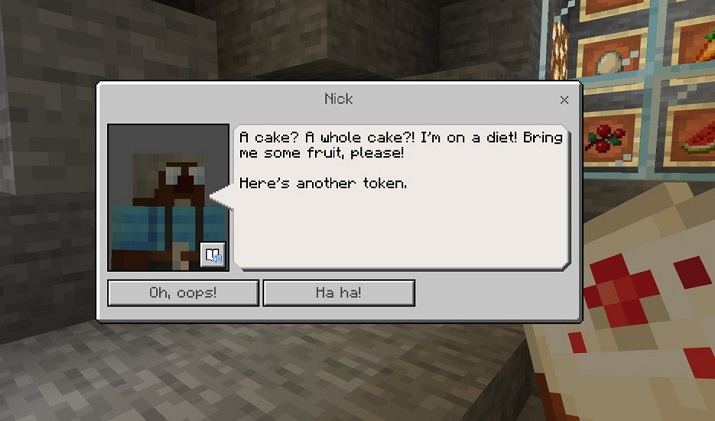It is not uncommon for English language lessons to favour communication over accuracy: real life is nothing like a classroom! In real-life situations, when you make a mistake in the language you are learning, context provides ample information as to what the intended message is. In fact, most of the time, impeccable accuracy is not needed at all! ‘Don’t worry about making mistakes,’ I used to tell my English language students, ‘communicating is the most important thing!’
What does the research say?
While making mistakes when trying to master a language might seem counter-intuitive, letting learners freely communicate and negotiate meaning is key to success. A learner who communicates a lot while making a few mistakes is much more likely to develop confidence for dealing with real-life situations than a learner who communicates very little because they’re afraid of making any. In communicative language teaching, for example, the teacher is tasked with both encouraging the learner to express themselves and with providing corrective feedback in a way that is not obstructive to communication (e.g. Brandl 2008).
This means that if a learner says, ‘I go swimming last night,’ it is much more effective to respond with, ‘Oh, that’s nice, you went swimming. What did you do after?’ rather than, ‘No! You went swimming! Use past simple for past events!’ – the former encourages the learner to continue their narrative while the latter is much more likely to make the learner stop in their tracks, re-evaluate the context, and think twice before expressing themselves again in the future, for the fear of making a mistake again. Teachers need to be careful not to parrot back everything the students say in this manner, of course, but the technique can be an effective method of acknowledging the content of a student’s response, while also providing feedback on accuracy.
The importance of the freedom to make mistakes in language learning is also supported by research in psychology, which suggests that learners who try a task without having mastered it completely experience improved retention of new information (e.g. Kornell et al 2009, Moser et al 2011). A similar experiment in the context of language learning also indicates that the process of making mistakes activates a greater network of related knowledge in the brain, which leads to superior learning outcomes (Guzmán-Muñoz 2020).
Top tips for helping learners … make mistakes!
In Cambridge English, we believe that the key to helping learners feel relaxed and ready for communicating freely in the classroom is authenticity. This means that there should be both a real communicative need for a learner to speak and the authentic reaction from those around to what the learner has said.
Let’s look at how this works in our new language-learning world in Minecraft. There’s a dwarf called Hungry who asks the player for some fruit. The player of course responds to Hungry not because they will get a mark from their teacher for it, but because they want to progress through the game, and because Hungry is nice and there’s also an alluring vending machine full of treats nearby! Just like in real life, the player is free to choose whatever they like from the vending machine. There isn’t a low mark for buying the wrong item. Instead, Hungry rewards the player with more language, pronouncing the name of the food item he’s brought, and sending the player back to try again.

Here are a few ways of how such authentic communicative interactions can be practised in the classroom:
- surround learners with the English language – encourage them to speak to you and each other in English
- don’t worry about diverging from topics that are not strictly covered in your lesson plan – sometimes the best communication is spontaneous
- model communication by telling your students stories and anecdotes about your own life and encourage them to do the same
- let your learners have fun with English – give them colloquial expressions to try and ask them to share some expressions that they’ve heard or seen elsewhere
- do not overcorrect – if an error is recurring, make a note of it and cover it in subsequent lessons
- avoid the temptation to turn what was intended as speaking practice into a full-on grammar lesson.
While easier said than done, especially when the outcome of an exam is at stake, it is worth remembering that Cambridge English examiners, just like the people that our learners might come to interact with outside of the classroom, are driven by the natural desire to understand the people they communicate with. This is especially powerful when practised in the context of a classroom – via role-playing activities or language-learning experiences like the one we’ve built in Minecraft. They set the learners up for success in real-life communication. In other words, when communication is the goal, mistakes are secondary, and that’s real life, isn’t it?
Explore our Minecraft world!
Adventures in English with Cambridge is our exciting new world created by world-leading English assessment experts in collaboration with Minecraft. Inspire your young learners to develop their English skills beyond the classroom in a way they will never forget.
Play now
References
Brandl, K (2008) Communicative Language Teaching in Action, New Jersey: Pearson Prentice Hall.
Guzmán-Muñoz (2020) Effects of making errors in learning a foreign language, Journal of Cognitive Psychology 32 (2), 229–241, doi: 10.1080/20445911.2020.1711766.
Kornell, N, Hays, M J and Bjork, R A (2009) Unsuccessful retrieval attempts enhance subsequent learning, Journal of Experimental Psychology: Learning, Memory, and Cognition 35, 989–998.
Moser, J S, Schroder, H S, Heeter, C, Moran, T P and Lee, Y-H (2011) Mind your errors: Evidence for a neural mechanism linking growth mindset to adaptive post-error adjustments, Psychological Science 22 (12), doi: 10.1177/0956797611419520.